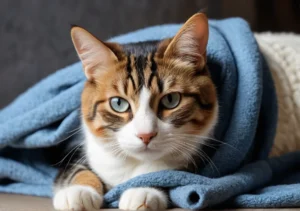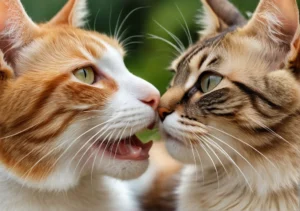Cats biting human toes can be a puzzling and painful experience for many pet owners. You may find yourself wondering why your furry friend is exhibiting this behavior, and what you can do to prevent it. In this blog post, we will explore the reasons behind why cats bite human toes and provide some insights on how to handle this common feline behavior.
Cats often bite human toes as a form of play or attention-seeking behavior. They may view your toes wiggling under the blankets as a fun and interactive toy, leading them to nip at them impulsively. This behavior can also be a sign of affection, as cats have scent glands in their mouth that they use to mark their territory, including their favorite humans.
Cat Behavior: Why Do They Bite Human Toes?
Have you ever wondered why your cat seems to have a sudden urge to nibble on your toes? Well, there are several reasons why cats exhibit this behavior. One common reason is that cats are natural hunters. They may see your moving toes as potential prey, triggering their instinct to pounce and play.
Additionally, cats may bite your toes as a way to seek attention from you. If they feel ignored or want to engage in playtime, they may resort to nibbling on your feet to grab your focus. It’s their way of saying, “Hey, pay attention to me!”
Another possible explanation for this behavior is territoriality. Cats are known for marking their territory, and biting your toes could be a way for them to assert dominance and claim ownership over you. It’s their way of showing that you belong to them.
Understanding why your cat bites your toes can help you respond appropriately. Providing them with alternative toys to play with, ensuring they have enough mental and physical stimulation, and offering positive reinforcement when they exhibit desirable behaviors can help curb this toe-biting habit.
Body Language: Understanding Your Cat’s Cues
Decoding your cat’s body language is essential for understanding their moods and intentions. When it comes to toe-biting, pay attention to your cat’s tail position, ear movements, and overall posture. A relaxed and playful cat will often have its tail up and ears forward, with a loose and fluid body. On the other hand, a tense or anxious cat may exhibit flattened ears, a twitching tail, or a crouched posture.
By observing and interpreting your cat’s body language, you can better understand when they are in a playful mood and likely to engage in toe-biting behavior. This knowledge can help you anticipate and prevent unwanted biting incidents, allowing you to interact with your cat more effectively and positively.
Remember, cats communicate through their body language, so being attuned to their cues can strengthen the bond between you and your feline friend. By reading their signals and responding appropriately, you can create a harmonious and fulfilling relationship with your furry companion.
Positive Reinforcement: Training Your Cat to Stop Biting
Is your precious feline friend treating your toes like chew toys? It’s time to teach them some manners with positive reinforcement. When your cat bites your toes, refrain from scolding or punishing them. Instead, calmly redirect their attention to a more suitable object, like a toy or scratching post. Reward your cat with treats when they play nicely and avoid biting. This positive reinforcement will help them associate good behavior with rewards, leading to a more harmonious toe-related experience for you both. Remember, patience and consistency are key when training your cat, so don’t give up if results aren’t immediate.
Environmental Enrichment: Keeping Your Cat Mentally Stimulated
Cats are intelligent creatures that need mental and physical stimulation to stay happy and healthy. If your feline friend is resorting to toe-biting out of boredom, it’s time to enrich their environment. Provide interactive toys that encourage play and mimic natural hunting behaviors. Set up scratching posts, climbing structures, and cozy hideaways to create a stimulating environment. Consider rotating toys regularly to keep things fresh and exciting for your cat. By keeping your cat mentally engaged and physically active, you can help prevent unwanted behaviors like toe biting. Remember, a happy cat is less likely to nibble on your toes out of boredom.
Additional Unique Insight: Invest in puzzle feeders or treat-dispensing toys to challenge your cat’s mind and keep them entertained. These interactive devices can provide mental stimulation and help curb negative behaviors like toe biting.
Health Concerns: When to Seek Veterinary Advice
If your feline friend is suddenly turning your toes into chew toys, it might be time to consider their oral health. Dental issues, such as tooth decay or sore gums, could be causing discomfort, leading to this behavior. To rule out any underlying health problems, it’s best to schedule a visit to the vet.
However, it’s essential to differentiate between playful nibbles and actual aggression. If your cat’s biting is becoming more frequent or aggressive, seek veterinary advice to address any potential health concerns.
Alternatives to Toe Biting: Engaging Your Cat in Play
Are your toes feeling more like catnip lately? It’s time to redirect that nibbling energy towards more appropriate outlets. Interactive toys, like feather wands or catnip mice, can provide mental stimulation and physical activity for your furry companion, reducing the temptation to nibble on your toes.
Engaging your cat in regular play sessions can also strengthen your bond while keeping them mentally and physically stimulated. Remember, a tired cat is a happy cat, so don’t skimp on playtime to prevent toe-related incidents.
Unique Insight : Consider incorporating puzzle feeders into your cat’s routine to provide mental stimulation and prevent boredom, ultimately reducing the urge to bite toes.
Seeking professional guidance for health concerns and keeping your cat engaged with play can help curb toe-biting behaviors, ensuring a harmonious environment for both you and your feline friend.
Trivia: Fun Facts About Cat Behavior
Cats have a strong instinct to hunt, and sometimes they may see your moving toes as prey. So, that gentle nibble might just be their way of engaging in a hunting behavior with you, their trusted companion.
In ancient Egypt, cats were revered and even considered royalty. So, if your cat is playfully biting your toes, it might be their regal way of showing affection and interacting with you.
Contrary to popular belief, cats are actually quite hygienic animals. If your feline friend is biting your toes, they might be trying to groom you, as they would their fellow cat companions. It’s their way of showing care and bonding with you.
Fun Fact: Cats have a heightened sense of smell and taste, so if your toes have an intriguing scent or taste, your cat might just be curiously exploring and investigating.
Conclusion: Strengthening Your Bond with Your Feline Friend
Understanding why your cat might be biting your toes is crucial in fostering a positive relationship with your furry friend. By recognizing that this behavior could stem from their natural instincts or a desire to bond with you, you can respond in a manner that strengthens your connection.
To enhance your bond with your cat, consider providing them with appropriate outlets for their hunting instincts, such as toys or interactive play sessions. This can redirect their attention away from your toes and towards engaging activities.
Additionally, ensuring your cat receives regular exercise and mental stimulation can help alleviate any boredom or excess energy that may be contributing to toe-biting behavior. A fulfilled and happy cat is more likely to engage positively with you and maintain a harmonious relationship.
Remember, patience and understanding are key when addressing your cat’s behavior. By approaching toe-biting incidents with compassion and a proactive mindset, you can build a deeper bond with your feline companion and create a mutually fulfilling relationship.
Extra Tip: If your cat’s toe-biting behavior persists despite attempts to redirect it, consider consulting with a veterinarian or animal behaviorist for personalized guidance and support.
Alex, a passionate animal lover, has experience in training and understanding animal behavior. As a proud pet parent to two dogs and three cats, he founded AnimalReport.net to share insights from animal experts and expand his knowledge of the animal kingdom.




